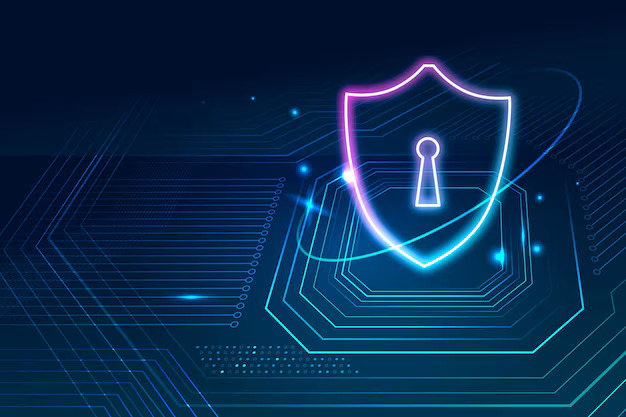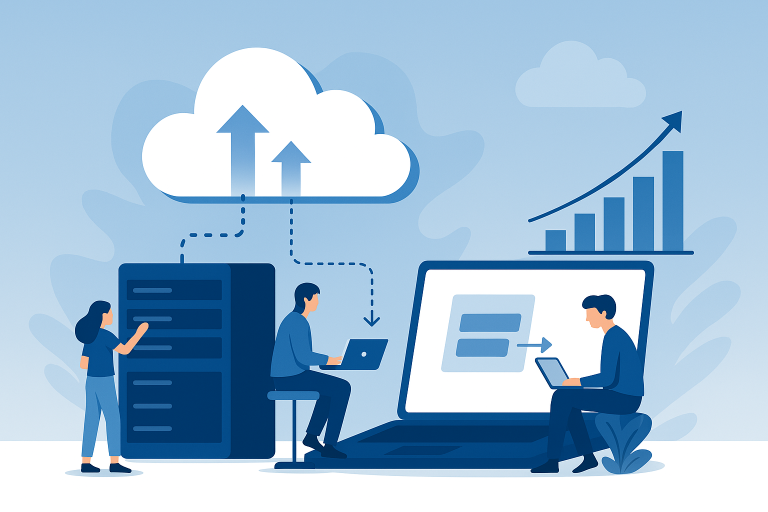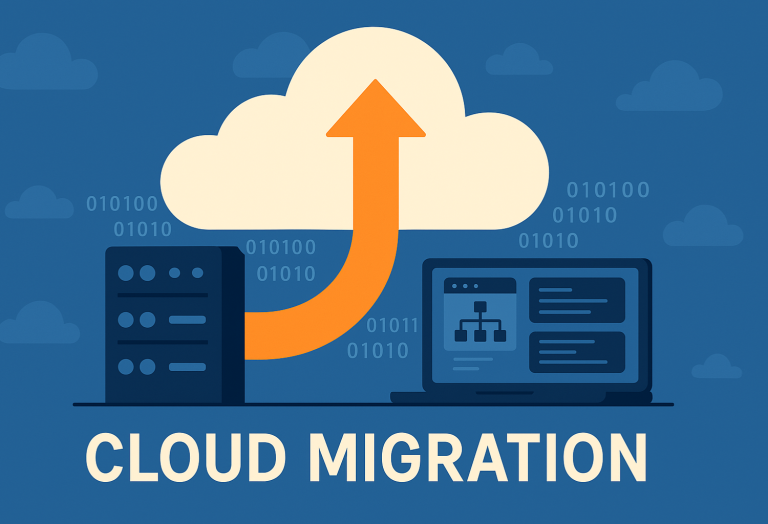
IT is always essential to pay attention to improving information security in organizations. With the evolution of technologies, cybercriminals are also being innovative to penetrate the security barriers and invade systems. So, enterprises need to take essential steps to protect their critical business information, customer data, etc., from data breaches, unauthorized access, and other disruptive data security threats. Improved IT security is crucial as cybercriminals get more sophisticated. Businesses must strengthen security to protect data and operations.
According to an FBI Internet Crime Report for 2020, just in 2020, $4.2B in losses were reported, which is about 200% more than the reported crimes in 2017( $1.4B). According to a recent Gartner report, IT security vulnerabilities are one of the most vital areas of concern for organizations. The cost of data theft is too high, making IT security in an organization crucial.
In most organizations, IT executives are exhausted in managing data breach threats, compliance issues, and exploding security budgets. For efficient IT security management, organizations need expertise, time and budget. Otherwise, it becomes challenging to deal with every potential attempt of hacking, malware, and other types of security threats. This is where organizations can consider hiring a reliable managed IT services provider to bridge their security gaps.
By recruiting a managed IT services provider, companies can outsource advanced IT security services, along with infrastructure management and focus on their core business. This service model allows organizations to ensure the security of their IT infrastructure and its smooth run. A managed service provider (MSP) also helps businesses to achieve high efficiency in operations, reduce operational costs, and improve end-user productivity.
How does Managed Services help to mitigate security risks
MSPs use different techniques to provide their clients with better cyber security, protect their data from hackers, etc. Managed security service providers carry out round-the-clock security operations center monitoring, network monitoring, managing software security updates, vulnerability management, and many more to improve IT security. Here are the seven ways that MSPs usually follow to reinforce IT security
Remote Monitoring
In the current distributed work environment, remote monitoring is one of the best ways to monitor the systems of the distributed workforce. It is a continuous process of monitoring vital systems and activities in your business’ IT infrastructure. An MSP offers you the facility of constant vigilance. It helps you to determine whether the systems are functioning at their optimal level and all your business-critical processes are on track.
Remote monitoring also helps organizations identify risks of threats and anomalies. They also proactively take mitigative steps to prevent any attempt of invasion, which helps to minimize the impact or downtime.
Perimeter Management
Perimeter management is another form of remote service that comprise the implementation of firewalls and intrusion detection systems. MSPs use this module to secure the installation, upgradation, and maintenance processes of your whole IT infrastructure. Perimeter management also includes managing configuration settings that ensure optimum security and functional condition of hardware and software.
Vulnerability and Penetration Testing
Vulnerability testing is basically a proactive approach to identifying the security gaps in your systems. Along with software scans, an efficient testing approach also includes simulated hacking attacks so that all vulnerabilities can be identified and addressed immediately. Usually, this testing process doesn’t include a network-wide security assessment. They focus on the perimeter and the loopholes that cybercriminals may exploit to invade the systems without the proper authorization.
On the other hand, penetration testing is usually conducted at regular intervals to evaluate the security measures of your infrastructure. For penetration testing, MSPs use different tools, techniques, and processes similar to cyber attackers to find and demonstrate the business impacts of weaknesses in a system. According to the findings of ethical hackers, organizations can use them to implement security upgrades to plug up any security gap discovered during the test.
Risk Assessment
A risk assessment is an efficient way to identify an organization’s risk posture for critical assets and systems, procedures, policies and controls. This assessment also helps to identify risks associated with information sharing, especially with third-party vendors, and mitigate them. A security expert can help you to address emerging threats so you can focus on your core tasks and also integrate new technology without security risks.
Remote Compliance Monitoring
With an MSP, it becomes much easier to measure and monitor governance, risk and compliance. Remote compliance monitoring allows organizations to run their business processes smoothly without encountering regulatory issues. An MSP can also help you make the critical connection between robust compliance processes and tangible business results. It can facilitate:
Asset protection
Revenue enhancement
Higher profitability/lower costs
Reputation and brand protection
Improved workforce performance
Customer attraction and retention
Endpoint Protection
In the current situation, when many employees are working remotely, endpoint protection plays a vital role in maintaining the security of your sensitive business information. An endpoint protection system is meant to ensure that all access points on the business’ network are protected. Otherwise, it is next to impossible to know whether your network has been breached.
Moreover, several organizations now support Bring Your Own Device (BYOD) policy to make their employees work from anywhere and anytime. So, the endpoint protection system has become mandatory to assure that the organization’s network is the same irrespective of how its employees work.
Access to the best security tools
Nowadays, there are several cyber security tools available in the market. The more effective a cybersecurity tool is, the more it costs. So, many companies have to compromise efficiency to fit their budget. Moreover, new tools are coming into the market continuously to deal with the latest threats, creating additional strain on fragile budgets.
On the other hand, MSPs have access to the newest and most effective security tools on the market. They are also well aware of the latest tools and resources that can be beneficial to your business needs. As a customer of an MSP, your organization benefits from their buying power and knowledge about effective security measures.
Conclusion
An organization can protect their business with an experienced Managed IT service provider and their threat hunting and monitoring capabilities. They offer real-time threat intelligence technology to protect your information and infrastructure. In short, hiring an MSP can improve your IT security and facilitate a significant return on investment for the business.

